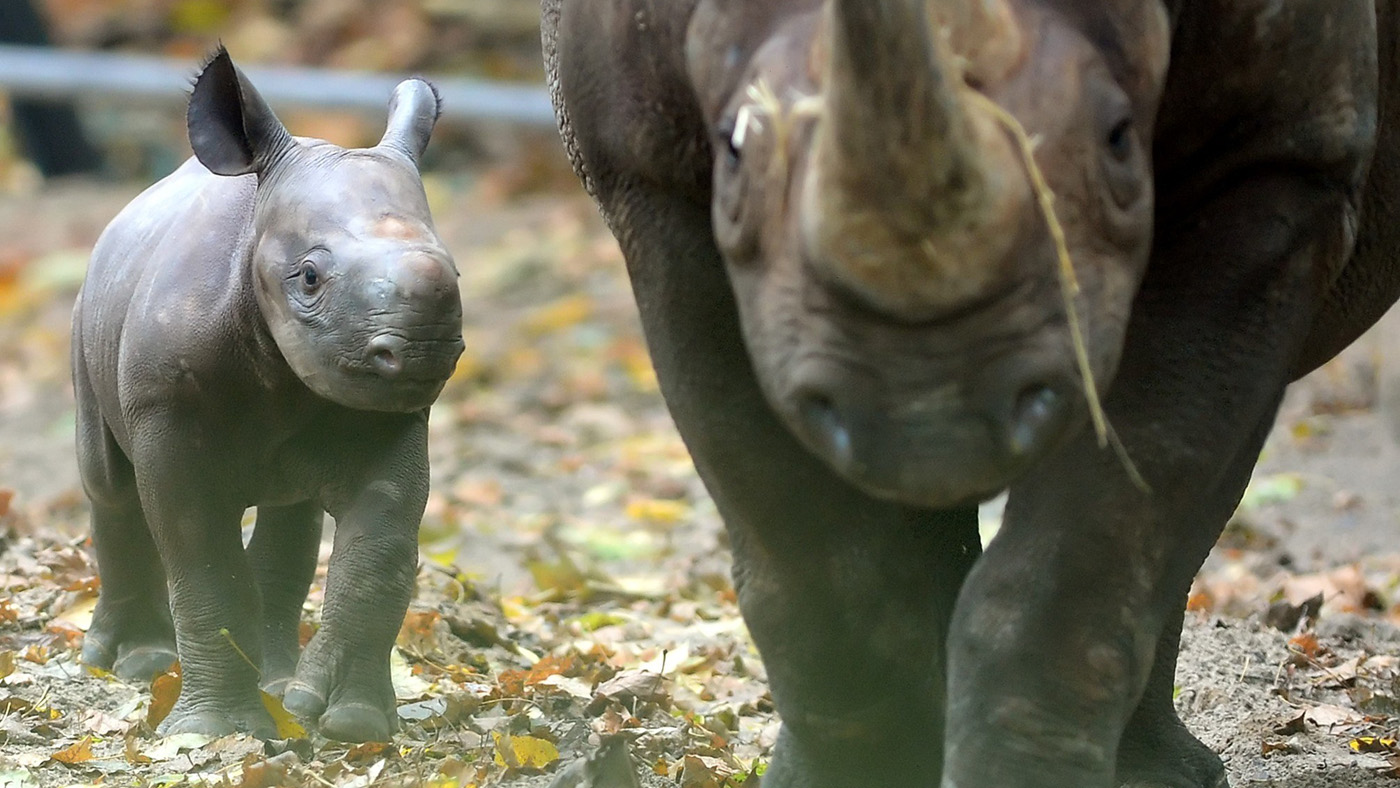Animal populations plunge by 58% since 1970
Decline will continue unless humans act to stop 'first mass extinction since dinosaurs', say World Wildlife Fund

A free daily email with the biggest news stories of the day – and the best features from TheWeek.com
You are now subscribed
Your newsletter sign-up was successful
The world is facing the "first mass extinction since the dinosaurs", according to a report by researchers from the World Wildlife Fund (WWF) and the Zoological Society of London (ZSL).
According to the Living Planet report, animal populations fell by 58 per cent between 1970 and 2012 and the decline is expected to reach 67 per cent by 2020.
The rate of extinction is "about 100 times faster than is considered normal – greater than during some of the previous five mass extinctions in the Earth's history", The Independent says.
The Week
Escape your echo chamber. Get the facts behind the news, plus analysis from multiple perspectives.

Sign up for The Week's Free Newsletters
From our morning news briefing to a weekly Good News Newsletter, get the best of The Week delivered directly to your inbox.
From our morning news briefing to a weekly Good News Newsletter, get the best of The Week delivered directly to your inbox.
The declining wildlife population is due to "human activity, including habitat loss, wildlife trade, pollution and climate change", the BBC says.
Freshwater environments, such as rivers and lakes, have been hardest hit, "with animal populations down by 81 per cent since 1970, due to excessive water extraction, pollution and dams", says The Guardian.
Dr Mike Barrett, the head of science and policy at the WWF, said declines in wildlife populations will probably continue over the coming years.
"We know what the causes are and we know the scale of the impact that humans are having on nature and on wildlife populations," he said. "It really is now down to us to act."
A free daily email with the biggest news stories of the day – and the best features from TheWeek.com
Dr Robin Freeman, the head of ZSL's indicators and assessments unit, said the projections will be accurate provided the pressures on wildlife populations do not increase.
"These trends are declines in the number of animals in wildlife populations - they are not extinctions," he said. "By and large they are not vanishing and that presents us with an opportunity to do something about it."
However, Stuart Pimm, a professor of conservation ecology at Duke University in the US, criticised the way the report was put together and said some of the numbers are "very, very sketchy".
He added: "They're trying to pull this stuff in a blender and spew out a single number... It's flawed."
Living Planet, a biennial report, features analysis of data collected on more than 3,700 vertebrate species around the world.
-
 Film reviews: ‘Send Help’ and ‘Private Life’
Film reviews: ‘Send Help’ and ‘Private Life’Feature An office doormat is stranded alone with her awful boss and a frazzled therapist turns amateur murder investigator
-
 Movies to watch in February
Movies to watch in Februarythe week recommends Time travelers, multiverse hoppers and an Iraqi parable highlight this month’s offerings during the depths of winter
-
 ICE’s facial scanning is the tip of the surveillance iceberg
ICE’s facial scanning is the tip of the surveillance icebergIN THE SPOTLIGHT Federal troops are increasingly turning to high-tech tracking tools that push the boundaries of personal privacy
-
 Israel retrieves final hostage’s body from Gaza
Israel retrieves final hostage’s body from GazaSpeed Read The 24-year-old police officer was killed during the initial Hamas attack
-
 China’s Xi targets top general in growing purge
China’s Xi targets top general in growing purgeSpeed Read Zhang Youxia is being investigated over ‘grave violations’ of the law
-
 Panama and Canada are negotiating over a crucial copper mine
Panama and Canada are negotiating over a crucial copper mineIn the Spotlight Panama is set to make a final decision on the mine this summer
-
 Why Greenland’s natural resources are nearly impossible to mine
Why Greenland’s natural resources are nearly impossible to mineThe Explainer The country’s natural landscape makes the task extremely difficult
-
 Iran cuts internet as protests escalate
Iran cuts internet as protests escalateSpeed Reada Government buildings across the country have been set on fire
-
 US nabs ‘shadow’ tanker claimed by Russia
US nabs ‘shadow’ tanker claimed by RussiaSpeed Read The ship was one of two vessels seized by the US military
-
 How Bulgaria’s government fell amid mass protests
How Bulgaria’s government fell amid mass protestsThe Explainer The country’s prime minister resigned as part of the fallout
-
 Femicide: Italy’s newest crime
Femicide: Italy’s newest crimeThe Explainer Landmark law to criminalise murder of a woman as an ‘act of hatred’ or ‘subjugation’ but critics say Italy is still deeply patriarchal